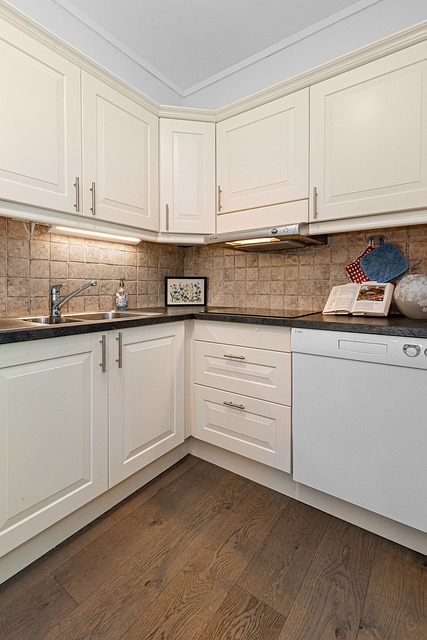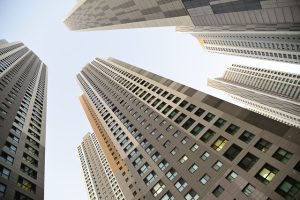Maximizing Long-Term Growth with HDB Executive Condo (EC) Investments in Singapore
Singapore's Housing & Development Board (HDB) Executive Condominiums (ECs) are a unique segment within the property market, designed for middle-income residents and bridging the gap between public and private housing. These ECs provide affordable cond…….

Singapore's Housing & Development Board (HDB) Executive Condominiums (ECs) are a unique segment within the property market, designed for middle-income residents and bridging the gap between public and private housing. These ECs provide affordable condominium living with amenities, and eligible residents may benefit from subsidies. Investors should note that ECs transition into fully privatized condos after a 5 to 10-year occupancy period known as the Minimum Occupation Period (MOP). Their location in mature estates or near development areas can lead to increased rental yields and property value over time. ECs differ from other housing types with their own eligibility criteria, which include income limits and ownership history. The resale market for ECs also offers opportunities for investors who do not wish to wait out the MOP. HDB ECs represent a compelling investment due to their blend of affordability, growth potential, and condominium amenities. Prospective buyers and investors should understand the specific characteristics of ECs, including their tenure structure and resale market, to make informed decisions in this dynamic property environment. Investing in HDB ECs requires strategic analysis of location, development trends, and government policies, along with adherence to financial regulations such as the Total Debt Servicing Ratio (TDSR). By staying informed on new releases and market trends, investors can capitalize on the potential for long-term capital gains in this promising investment class.
Exploring the lucrative avenues of property investment in Singapore, this article casts a spotlight on the HDB Executive Condominium (EC) as a prime asset. Delve into the intricacies of HDB EC investment, a strategic choice for both residential living and long-term capital appreciation. We’ll guide you through understanding the unique benefits of HDB ECs and offer key insights on maximizing your investment potential within Singapore’s dynamic property landscape. Join us as we unravel the opportunities that HDB ECs present to savvy investors looking for growth and stability in their portfolios.
- Understanding HDB Executive Condominium (EC) Investment: A Comprehensive Guide
- The Advantages of Investing in an HDB EC for Long-Term Growth
- Strategic Considerations and Tips for Securing Your EC Investment in Singapore's Property Market
Understanding HDB Executive Condominium (EC) Investment: A Comprehensive Guide

In Singapore’s vibrant property market, the Housing & Development Board (HDB) Executive Condominiums (ECs) offer a unique investment opportunity that blends the benefits of both public and private housing. For prospective investors and homeowners, understanding the nuances of HDB ECs is crucial. Unlike traditional HDB flats, ECs are housed within condominium developments, providing residents with amenities such as swimming pools, gyms, and more, all while enjoying the affordability and subsidies associated with public housing. These properties cater to the middle-income group, offering a pathway for upgrading from HDB flats to more luxurious living spaces without immediately transitioning into private property markets. Investors should be aware that ECs have a unique tenure structure: initially, they are for use by Singapore citizens or permanent residents for 5 to 10 years before becoming fully private property at the end of the Minimum Occupation Period (MOP). This feature makes them an attractive investment, as they appreciate in value over time and offer potential capital gains. Prospective buyers should also consider the location, as ECs situated in mature estates or those near future growth areas can provide additional value through both rental yield and appreciation.
When considering an investment in HDB Executive Condominiums, it’s important to examine the eligibility criteria, which differ from those for HDB flats and private condominiums. Eligibility is determined by income ceilings, age limits, and whether applicants have previously owned or are currently owning a flat. Additionally, the resale market for ECs provides an alternative investment avenue for those who prefer not to wait out the MOP. This market allows for transfers between Singapore citizens or from Singapore permanent residents to citizens, subject to approval and meeting the necessary criteria. For investors looking for a balance between affordability, growth potential, and a lifestyle that aligns with condominium living, HDB ECs present an appealing investment opportunity in Singapore’s dynamic property landscape.
The Advantages of Investing in an HDB EC for Long-Term Growth

Investing in an HDB Executive Condo (EC) presents a unique opportunity for long-term growth, particularly within Singapore’s property market. Unlike private condominiums, ECs offer a dual benefit of public housing subsidies and potential investment appreciation. These properties are designed for eligible middle-income families, which often translates to competitive pricing relative to similar-sized units in the private market. As these residents typically have a stable income and strong commitment to long-term residency, the turnover rates for ECs tend to be lower than other property types, fostering a more stable investment environment. Moreover, the strategic location of HDB ECs, often near comprehensive amenities and well-connected transport networks, adds to their appeal and potential for value appreciation over time. For investors eyeing long-term capital gains, an HDB EC can be a wise choice given its alignment with the needs of a growing segment of the population and the support of government housing policies. The combination of affordability, desirability, and strategic location positions HDB ECs as a compelling option for those looking to invest in property with a view towards sustainable growth.
Strategic Considerations and Tips for Securing Your EC Investment in Singapore's Property Market

When considering an investment in Singapore’s property market, particularly in HDB Executive Condominiums (ECs), strategic planning is paramount. Prospective investors should scrutinize the location and development trends of past EC launches to discern areas with high growth potential. Factors such as proximity to mature estates, future MRT stations, and amenities like shopping centers and schools can significantly impact property values over time. It’s also wise to review government policies, as they can influence the availability and pricing of ECs.
To secure a lucrative EC investment, one should prioritize understanding the eligibility criteria for purchasing an EC, which differ from regular HDB flats and private condominiums. A five-year minimum occupation period before owners can sell their units on the open market is among these conditions. Additionally, potential investors must consider the total debt servicing ratio (TDSR) and the additional borrowing limits set by financial institutions to manage financial exposure. By staying informed of Singapore’s property market dynamics, including the supply of new EC projects and the resale market trends, investors can make more informed decisions, ultimately enhancing their chances for a successful and profitable investment in HDB Executive Condominiums.
In conclusion, exploring investment opportunities within Singapore’s property market presents a unique avenue for long-term growth, with HDB Executive Condos standing out as an attractive option. As outlined in this guide, understanding the intricacies of EC investments is pivotal for leveraging their potential benefits. With strategic considerations and informed tips in hand, investors can navigate the dynamic landscape of Singapore’s property market, positioning themselves to reap the rewards of HDB Executive Condo investment. Prospective investors are encouraged to delve into the details presented herein to make informed decisions that align with their financial objectives.







